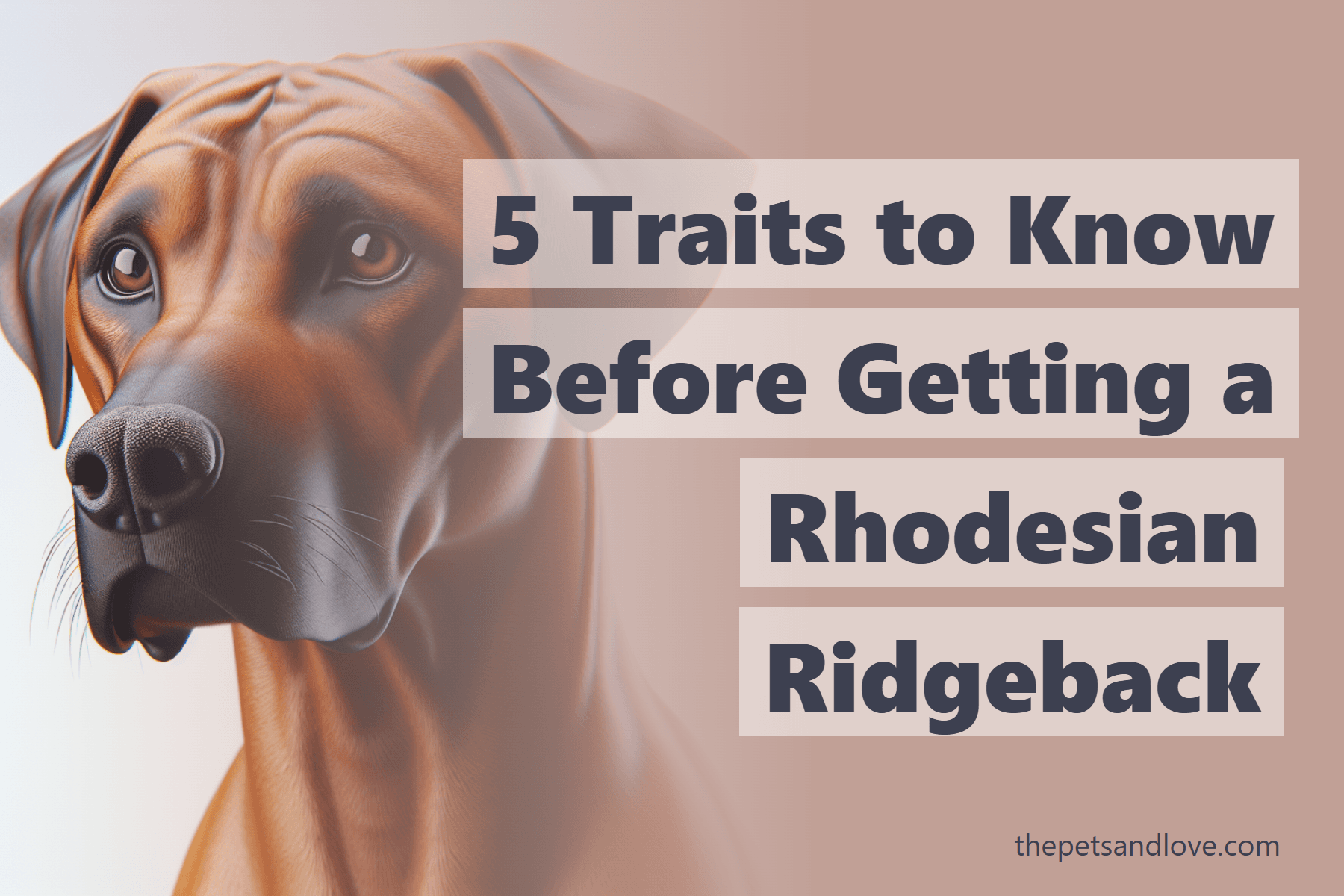5 Things I Wish I Knew Before Getting My Rhodesian Ridgeback

When I first brought home Max, my Rhodesian Ridgeback, I had no idea what I was in for. I’d read all the breed info, watched videos, even talked to a few owners—but nothing quite prepares you for actually living with one. These dogs are smart, loyal, and incredibly unique. If you're thinking of adding a Ridgeback to your family, here’s what I’ve learned from life with Max—and what I wish someone had told me sooner.
1. They’re Smart (and Sneaky)
Max figured out how to open the back door in a week. Not kidding. Rhodesian Ridgebacks are highly intelligent and natural problem-solvers, which is both a blessing and a challenge. If they’re bored, they’ll find their own fun—usually at your expense.
What helped us: I rotate puzzle toys, do short but consistent training sessions twice a day, and keep Max’s brain as busy as his body. A mentally stimulated Ridgeback is a happy (non-destructive) Ridgeback.
2. They Bond Hard
From day one, Max picked me as “his person.” That kind of loyalty is beautiful, but it also means they can be overly protective. Early and ongoing socialization is key to helping them feel secure around new people and environments.
What worked: Puppy classes, inviting friends over regularly, meeting strangers in neutral places, and lots of positive reinforcement. Start young if you can.
3. That Prey Drive? It’s No Joke
The first time Max spotted a squirrel, I learned just how fast and focused these dogs can be. Ridgebacks were bred to track lions—so yes, chasing small animals is in their DNA.
How I manage it: Solid fencing (at least 6 feet), strong recall training, and leashing him in any unfenced area. Also, daily exercise to keep that energy in check.
4. They Think For Themselves
Ridgebacks aren’t stubborn—they’re discerning. Max doesn’t just obey because I said so. He needs to understand why it's worth it. And honestly? I’ve come to respect that.
Training tips that worked: Keep it short and fun. Use high-value treats (freeze-dried liver is gold in our house). Be consistent and patient. Turn training into a game, not a chore.
5. Not Social Butterflies—And That’s Okay
Max is super affectionate with us, but reserved around strangers. That’s just his personality. He’s not aggressive—just not interested in being everyone’s best friend.
Our approach: Regular trips to dog-friendly places, visits to the dog park during quiet times, and always giving him space when he needs it. I don’t force interactions—just guide him to be polite and calm.
Is a Ridgeback Right for You?
Before bringing one home, ask yourself:
- Can you commit to daily physical and mental exercise?
- Are you up for ongoing training and socialization?
- Do you have a secure yard and time for walks?
- Are you okay with a dog that’s independent and strong-willed?
These dogs aren’t for everyone, but if you’re ready for the challenge, they’re incredible companions.
Choosing a Puppy
When I picked Max, I spent time with the litter more than once. I watched how the puppies interacted, asked about the parents’ temperaments, and looked for one that was curious and comfortable being handled—not the boldest or the shyest.
Remember: training and environment shape your dog just as much as genetics. Max started out mischievous and headstrong, but with consistency, he’s become a loyal, loving, and hilarious part of our family.
Living with a Ridgeback is a wild ride. You’ll laugh, you’ll learn, and yes—you’ll probably lose a few throw pillows. But if you’re up for the journey, they’ll give you their whole heart in return.
Take the Quiz
Is a Rhodesian Ridgeback Right for You?
The Rhodesian Ridgeback is known for its strength, loyalty, and distinctive ridge of hair along its back. Discover if this athletic and protective breed is the perfect companion for your lifestyle by taking our quiz! Answer all questions below to discover your compatibility score and get personalized insights.
Question #1: What is the main reason you want a dog?
Question #2: How active is your lifestyle?
Question #3: How much time can you dedicate to your dog daily?
Question #4: What best describes your home environment?
Question #5: What size dog do you prefer?
Question #6: What personality traits do you want in your dog?
Question #7: How much grooming can you handle?
Question #8: Who else lives with the dog?
Question #9: Is this your first dog?
Please answer all 9 questions to see your results
